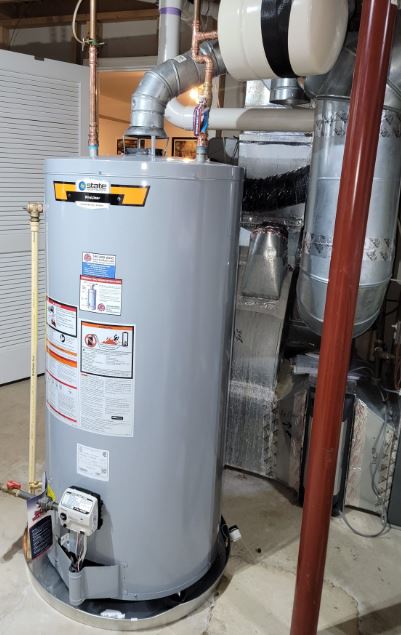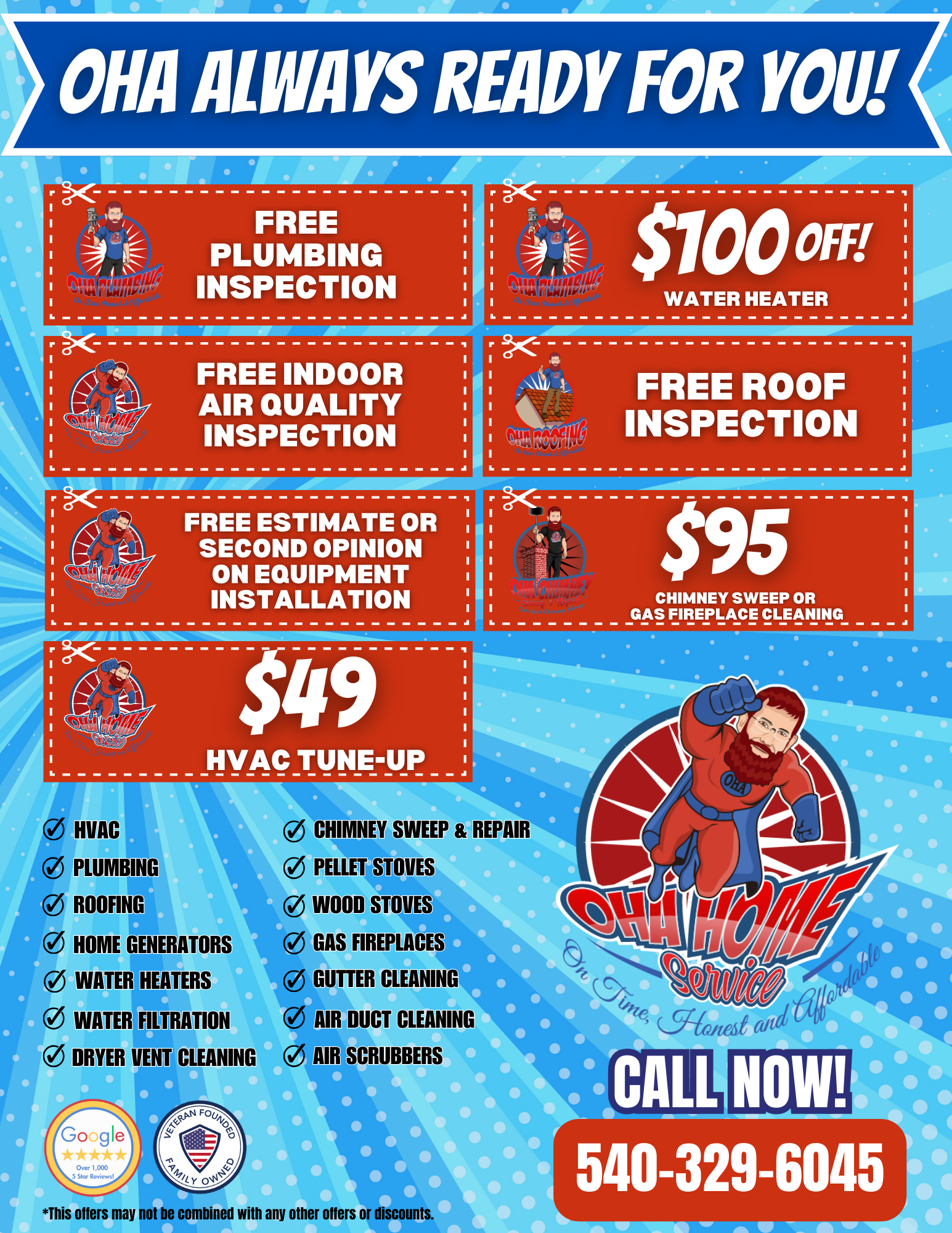Fun fact: There is perhaps no device on earth that can function flawlessly forever – none!
Take your car, for example. There must have been at least one instance where it has broken down unexpectedly, leaving you stranded, hasn’t it?
Such instances make you regret disregarding the signs and symptoms that you clearly saw coming.
Similar is the case with water heaters.
A problematic water heater doesn’t ring any alarm bells…until you have to take a shower with freezing water. However, there are specific signs that point to the impending water heater problem.
Let’s face it: Your water heater operates nonstop every day of the year. So, it should be no surprise that it will eventually fail, given the increased strain it must withstand.
When all of your taps supply only cold water, it immediately dawns on you how precious this man-made invention really is.
So, to keep your water heater in tip-top shape, you need to recognize all the wear-and-tear signs.
But before that, let us explain why water heater repairs are essential.

Water Heater Repairs: Why Do You Need Them?
Cold water isn’t the only reason you should be worried about repairing your water heater.
There are a couple of more compelling arguments for why you shouldn’t put off water heater repairs.
1. A Broken Water Heater Can Be Dangerous
Repairing your water heater may not be on top of your to-do list; however, you can easily lose control of the situation and jeopardize your safety.
But how?
Well, water heaters need both power and water. Now for well-functioning heaters, this is no issue at all.
However, if things take a turn for the worse and both of these come into contact, it can lead to some serious safety hazards (including a full-blown fire)
So, if you ever notice any water leakage, the need for repair becomes an emergency.
Other than the more serious risks, water leaks can also harm the surrounding surfaces and damage any nearby items. This is because even a tiny leak can foster the growth of mold and mildew.
2. Prolong The Life Of Your Water Heater
If your water heater has ever made banging or knocking noises, this is probably a sign that you need to get it flushed.
The loose minerals in the water allow the sediments to settle on the bottom. So, when you delay periodic repairs, even minor issues like dirt accumulation and worn-out parts can suddenly become a hassle.
These problems can accumulate over time and greatly increase the likelihood that your water heater will soon malfunction.
So, ensuring regular repairs might help your water heater last longer.
3. Save Cash
It’s common sense that a struggling water heater cannot operate as efficiently as a well-maintained one.
This means that if your water heater needs maintenance or repairs, it will struggle to provide the hot water you need and put undue strain on the system.
Now, what does this translate into?
Sky-high electricity bills!
Simply put, a struggling water heater leads to a drastic increase in the water heating duration, making your power expenses shoot up!
Needless to say, don’t neglect your water heater issues if you want to save some bucks.
4. Conserve Water
When your water heater is not running properly, it results in a lot of water wastage.
Try to recall: how frequently have you left the faucet or shower running (and running…) while waiting for the water to warm up?
This is inefficient, and you should be more mindful of using only the required amount of water, especially with droughts and water shortages in so many parts of the world.
The good news is that some simple repairs are all you need to avoid negligence on your part.
12 Signs You Need Water Heater Repair
Water heaters are generally designed to last many years because they are usually subjected to heavy use.
Even so, if they are not properly repaired or maintained, they won’t last nearly as long.
And now that you know why water heater repairs are not to be taken lightly, let us help you by sharing 12 signs that your water heater needs repair.
1. Fluctuating Water Temperatures
Even though constantly changing temperatures are the clearest indication that your water heater needs immediate repairs, many people are still unaware that it might be a sign of trouble.
So, if you are constantly turning on the taps in your home, but the water takes ages to heat up or just doesn’t provide hot water, it’s time to have some repairs done.
Also, try to recall when you purchased your water heater.
This is important because you can get it fixed if it’s still reasonably fresh, but if it’s too old, it would be preferable to get a new one.
This way, you won’t have to fix the appliance continuously, saving you time, money, and agony.
But what causes the fluctuating temperatures?
Well, the buildup of mineral deposits might be to blame.
As we mentioned, your water heating elements become covered with mineral deposits over time, preventing them from functioning optimally.
If some buildup is your only issue, you can get away with having the water elements repaired instead of purchasing a brand-new water heating system.
2. Strange Noises
Most home appliances start making strange noises when they need repairs, and your water heater is no exception.
As the heating system ages, a light hum from your heater can gradually develop into rumbling noises, and many people start believing that their water heater will soon burst.
But don’t worry, this isn’t really the case.
If your water heater makes a little noise, that’s completely normal. However, you have good reason to be concerned if your water heater starts to make loud pounding, squeaking, or cracking sounds.
To determine the exact problem, you should contact professionals to examine your water heater.
But just to give you a general idea, the most common reason a water heater becomes noisy is, again, an excessive buildup of dirt inside the tanks and on the heating elements.
There may also be other reasons, such as a broken dip tube.
It’s crucial to get the necessary repairs done because excessive noise might weaken your water heater’s structure and cause it to start leaking. If that happens, you may have to bid farewell to your current water heater and invest in a new one.
However, if yours hasn’t yet started leaking, you can ask the plumber to thoroughly flush the water out and clean the heater’s interior.
This should make your water heater stop making noises and allow it to function normally.
3. Water Leaks
Your water heater’s structure can deteriorate for multiple reasons besides noise, which can eventually lead to leaks and water accumulation at the bottom of the tank.
As a general rule, it’s common for your water heater to periodically display some condensation on the outside depending upon the water’s temperature.
However, the pressure relief valve should be the only place where water should exit from a water heater in a greater quantity. If you notice water dripping from anywhere else, it could indicate major issues with the appliance.
You shouldn’t take this lightly, as water leaks can be highly dangerous, especially if children, pets, or other electrical equipment are nearby.
If you notice water trickling down the side of the appliance or a pool of water at the base, it should certainly ring some alarm bells.
4. Rusty Or Discolored Water
Rust-colored water clearly indicates something is wrong and may signal an issue inside the water tank.
The water not only looks bad but can also pose several health risks to you and your family. You can develop skin issues, and if you drink it, you may also encounter other health problems.
Cloudy water may also potentially indicate a problem with your water heater. If you have doubts, pour some water into a transparent glass and examine it. Also, sniff it to see if you recognize any metallic smells.
But what results in discolored water from your water heater?
Well, the pole inside the water heater is made of metal; over time, these metals can oxidize and result in rusty water flow. However, it is possible that the issue lies with the pipes rather than the water heater.
It’s best to contact a professional for repairs. They will inspect the problem and recommend repairs that will prevent further harm.
5. Corrosion
Rusty water isn’t the only sign of corrosion in your water heater.
Oftentimes, corrosion is also visible on the outside of your water heater. You might even observe that the metal components of your appliance will be considerably weaker and more prone to developing leaks.
If corrosion has deteriorated your water heater to the point that it is beginning to split and leak, you will need to replace it entirely.
But what if the corrosion is not fully spread?
Well, some people replace the heat exchanger and other rusted elements to get the heater functioning. However, this is merely a short-term fix.
Water heaters only last so long. So, if you want to get more use out of them, it is crucial that you have them repaired, maintained, and cleaned on a regular basis.
6. Unpleasant Taste Or Smell
Apart from the color, the water from your water heater can also taste and smell bad.
This is most likely because your water tank’s interior covering is flaking off.
Any foul odor/taste is not a good sign, as these grit and flakes can seriously put your health at risk, so you should fix your water heater as soon as possible.
7. Reduced Hot Water Pressure
A buildup of minerals, rust, or other sediments in the tank, outlets, and pipes connected to your water heater can commonly result in low hot water pressure.
This is because when the hot water lines from your heater to your outlets get increasingly clogged and restricted, it results in lower hot water pressure once the hot water reaches the outlet.
The problem can also result from a damaged circulator pump. Additionally, an old water heater might also be the cause of the reduced pressure.
The right way to approach this problem would be to reach out to a professional plumber. They will have the right tools to quickly inspect the water heater’s tanks, connections, and pipes and come up with a feasible solution.
8. Lukewarm Water
If you suddenly find yourself forced to take lukewarm showers in the morning instead of hot showers, your water heater may need some attention.
Now, there may also be other fixable issues that can make your water heater only produce lukewarm water rather than hot water.
For instance, you may have altered your water heater’s settings to vacation mode or a lower temperature.
It’s also possible that your water heater may warm the water more slowly than usual if the outside temperature is very chilly or if your hot water consumption has sharply gone up.
However, if none of these conditions apply and you still only get lukewarm water, it’s possible that your water heater needs to be inspected.
9. Sludgy Or Sandy Water
If you notice sandy water coming out of your tap, your water heater might be to blame.
It is typically a sign of debris buildup in the bottom of your water tank, which should be addressed immediately as muddy water is not safe for consumption.
One reason for the sediment gathering in the pipes is because of fractures in the line that enable dirt to get through. It’s better if you don’t try to remove the sediment yourself because doing so frequently results in homeowners breaking their water heaters.
Try to get in touch with a professional who is more qualified than you to handle the situation.
10. You Rarely Get Enough Hot Water
Your water heater is built so that it can provide a constant hot water supply.
It features two heating elements; one is located at the bottom and the other at the top.
Water heats up by conventional currents, so the lower element handles the majority of the heating. As a result, cold water sinks to the bottom while hot water rises to the top.
Meanwhile, to keep the water at a steady temperature, the element at the top only turns on occasionally.
So, when the lower element becomes damaged, there will be a pronounced decrease in the volume of hot water your water heater produces.
This makes one thing clear: if you frequently run out of hot water, one of your water heating elements (probably the lower element) may not be functioning properly, and your water heater needs repairs.
11. Your Water Heater Is Discharging VERY Hot Water
Now this one may sound a bit counter-intuitive, but hear us out.
Sometimes, extremely hot water can also signal that your water heater needs some repairs.
Some common reasons your water may be scalding hot are a malfunctioning thermostat, a jammed pressure relief valve, or a failing heating element.
As important as a heating element is for a properly-functioning water heater—as we already mentioned above—it can sometimes also break down.
A heating element that starts failing will stay on constantly and lead to overheating, resulting in excruciatingly hot water.
Eventually, the heating element will burn itself out completely. Then, until the element is replaced, you probably won’t have any hot water at all.
12. Your Water Heater Is Simply Old
Yes, this is also an obvious (though neglected) sign that your water heater may need more fixing and repairs than a water heater that has just been launched.
A water heater typically lasts between 5 to 10 years before needing to be replaced.
But once your water heater has been in use for over 5 years, you can anticipate it to start acting up.
So, you should schedule routine appointments with a licensed plumber for water heater repairs.
Timely and appropriate repairs might make your water heater survive up to 15 years.
To determine how old your heater is, you can simply look up your water heater’s model on the company website.
Parting Thoughts
Water heaters are truly a blessing…but there’s a small catch.
As with most modern devices, to reap the benefits of your water heater, you must invest in its upkeep.
So, what should you do to keep your water heater functioning as good as new?
Well, you should watch out for anything irregular from strange noises to unpleasant smells to even very hot water!
After all, a well-maintained water heater keeps you at ease and also saves you extra costs.
Looking for credible water heater repair professionals in Stafford, Fredericksburg, and Spotsylvania?
Well, then get in touch with OHA Plumbing right away. We’ll take care of all your water heater problems.











